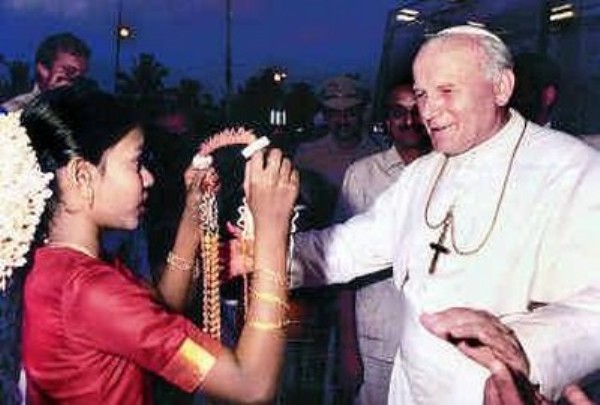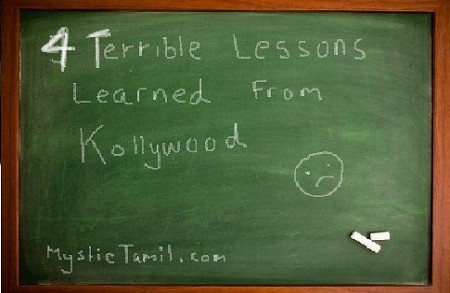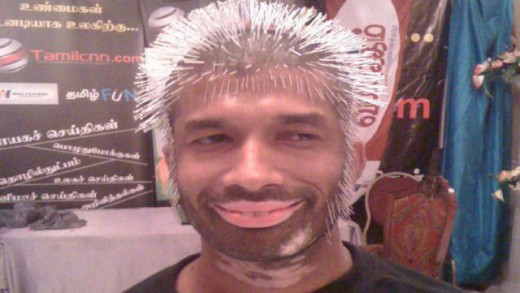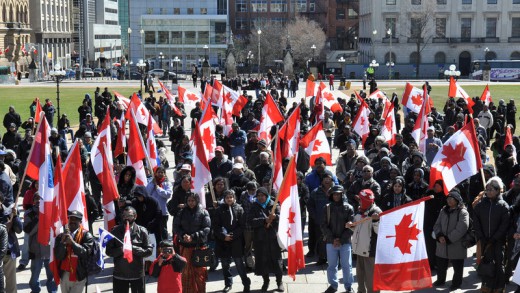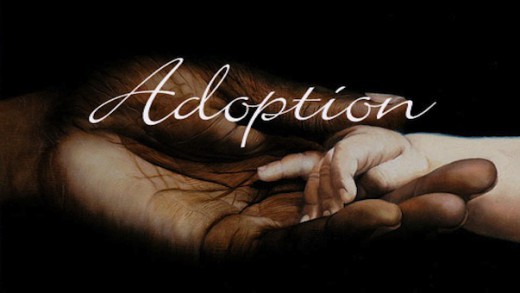Every now and then I feel a sudden urge to go through my childhood photo albums. Memories and old stories fill my mind with each turn of a page, and I quickly begin to realize how much my family and I have evolved over the years.
There are two photo albums that I can particularly recollect because they so obviously point out the religious dichotomy in my family. Given that baptism and marriage are two traditions that have historically been rooted in religious customs, I have come to see these two photo albums as strangely symbolic of my own religious experiences. Raised as a Catholic, yet having paid witness to many Hindu cultural traditions over the years, I can claim a diverse and colourful range of religious and cultural experiences. But what does this all matter? Do I ultimately consider myself Catholic or Hindu?
I would define myself as a practicing Catholic (although my mother would likely contest this claim as I have missed one too many weekends of church!), but I am also fascinated by my father’s Hindu roots. This is not to mislead people into thinking that I am confused religiously or anything. I am very much a proud Catholic. However, I don’t think I should be ridiculed for my eagerness to learn more about my father’s Hinduism – something I often find myself having to explain to strangers, friends, and even members of my own family. I am not any less of a Catholic because of my interest in learning about Hinduism, and I am also not any less of a Tamil because I am a Catholic.

I’ve noticed from speaking with non-Tamils that there may be a generalization out there that all Tamils are Hindus. I realize that my experience is unique as my father is Tamil and Hindu, and my mother is Filipino and Catholic, but I am sure that many Tamils of different religious backgrounds can also attest to feelings of frustration that may come with explaining that they are indeed both Tamil and Catholic, or Tamil and Muslim, or any other religion.
I have often had discussions about this very topic with a friend of mine from high school. She is a Tamil born to Tamil Catholic parents, and has often voiced to me her struggles in explaining her religious identity to others. I hope I am conveying her sentiments correctly when I say that within the Tamil community there are very different perceptions of how people may perceive Tamil Hindus, in contrast with Tamil Catholics and/or Tamil Muslims.
I acknowledge that my own background and personal experiences do not stand as reflective of the experiences of most Tamil Catholics. However, I think it may be important to discuss my own unique religious experiences and to explain how I have come to perceive my religious identity as a Catholic, who has had a lifelong fascination with Hinduism.
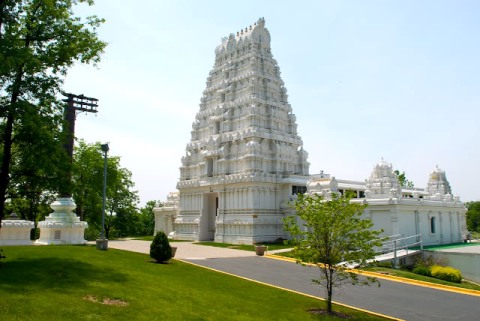
Having gone to Catholic school all my life and experienced the Catholic religious sacraments of Baptism, Reconciliation, First Communion, and Confirmation, I’ll be the first to say that I wasn’t always confident in my Catholic identity. Sure, I went through all the ceremonial processes of initiation into the Catholic community, but like many Catholic children growing up in a modern society, I often found it difficult to grasp the true meaning behind these rituals until I was much older.
Alternatively, I’d say that my fascination with Hinduism started at a young age when my father would take our family to Hindu weddings, and on special occasions, our local Hindu Temple. I’m embarrassed to say that on these occasions I’d often annoy the heck out of my father with a bombardment of questions. “Can you understand what the priests are saying Dad?” “Is that Sanskrit?” “What are they doing to the statues?” I still recall myself asking after one particular outing.
Thus, to bring a halt to my constant nagging of my father and to feed my own curiosity, last summer I decided that I would take up the initiative to learn about Hinduism and read an English translated version of the Bhagavad Gita. This surprisingly and almost immediately led to a lot of criticism on my behalf from my family and friends which I did not expect. Many of them probably thought and even voiced to me, “You’re so pretentious!” or, “What’s the point of doing that? Aren’t you Catholic?” or, “Are you going to convert religions?”
What bothered me about this was that my sheer desire to learn about another religion was brushed off as strange behavior or something that would not be enough to make me Tamil. My identity was questioned when I simply took interest in something that ran counter to what people expected of me.
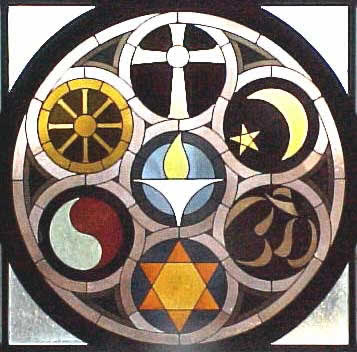
I know this can be considered a controversial topic as any discussion about religion and identity are surefire ways to rattle people, but what I hope comes of my short reflection on my own religious journey, is the encouragement of positive dialogue in how we perceive one another’s religious identities and journeys in the Tamil community. If people are interested in learning about other religions, or practice beliefs that run against the norm of what people expect of them, should they really be scrutinized for it?
As I am still growing and learning new things from the world around me, I am continuously questioning and searching for ideas and experiences to help me make sense of my own identity, life, and this earth that we live on. I know a lot of other young people like myself are probably undergoing similar experiences; constantly trying to make sense of the world. Is it really so strange that I, a young woman is trying to learn more about her world and heritage?
Some questions for readers to consider and comment on may be: What makes us perceive Tamil Catholics one way, Tamil Muslims another? What are these perceptions that we use to refer to Tamil Hindus? Is an ethnically mixed person with inter-religious parents less Tamil? What makes one Hindu? What makes one Tamil?
Related:
The Women of Arabia Wore Shalwar Kameez in the 7th Century
The Education of Jaffna

 Shanelle Kandiah
Shanelle Kandiah